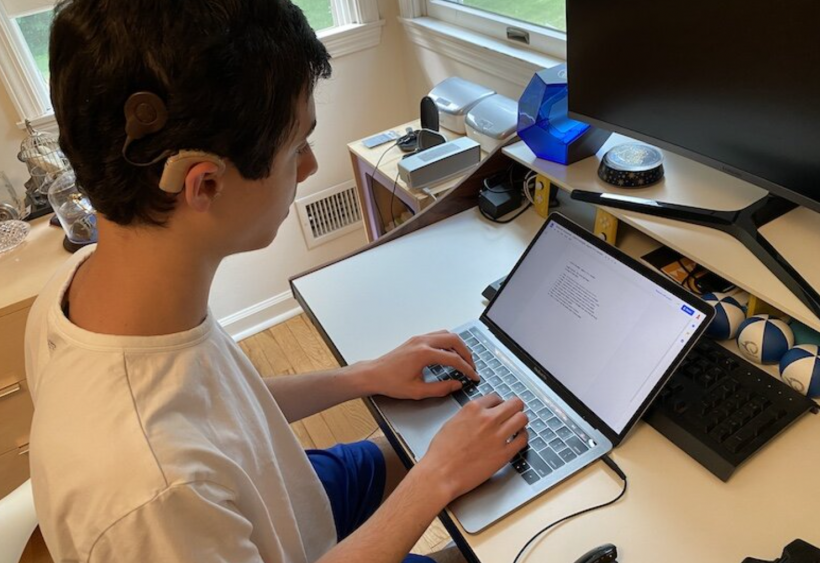Over the last few decades, hearing aids have become a common corrective measure for people with hearing loss. Hearing impairment can happen to anyone at any age, though some factors may increase your chances of developing ear problems.
While more people are increasingly open to using hearing aids, some still stick to the old myths concerning these gadgets. In fact, unbiased myths are among the leading causes of why most people don’t seek ear solutions when experiencing hearing loss.
According to data published by the National Institute on Deafness and Other Communicable Disorders (NICDC), only about 20 % of people who could benefit from hearing aids actually use them.
These startling statistics show how just how many people are living in denial or without knowledge of their hearing impairment. In part, more ear clinics are needed to create awareness and cater to hearing loss patients. Learn more on how you can become a hearing aid provider in your region.
What are the most common myths about hearing loss and hearing aids?
Abstract and preposterous as they may be, most myths can keep you from visiting an ENT specialist. Most myths prey on your emotions and naivety, thereby suppressing any need for more knowledge or understanding in a particular subject. The best way to bust a myth is by confronting it with the truth. Here are some common myths and what the facts actually say.
1. You can easily recognize signs of hearing loss
One of the major beliefs that people still hold onto is hearing loss is easily diagnosable. To most, you can tell when your hearing is perfect and when it starts to deteriorate. Additionally, many people think they can tell when losing their hearing because they think it happens at once.
The truth about hearing loss is it can be a gradual process that takes several years. Over this time, your hearing ability will slowly deteriorate, but you’ll likely not notice it. Since the change is often subtle, you’ll get used to automatically adjusting to compensate for the hearing loss.
The most effective way to diagnose hearing loss development is through a hearing test. This test helps the audiologist to identify any signs related to hearing loss. Regular ear checkups can significantly improve your treatment and management options.
2. Hearing aids make every sound unbearably loud
Initially, some hearing aids did have an issue with sound management. Most of these archaic hearing aids worked by amplifying sound reaching the ear. As a result, some noises would appear too strong for some hearing aids.
However, this is a thing of the past as modern hearing aids account for sound changes and variables. Additionally, with the help of technology, most modern hearing aids are equipped with noise-reduction and sound processing capabilities.
These modernized features make hearing aids ideal for most environments. Now, you don’t have to worry if you’re having a conversation or visiting a hotel or busy market. The hearing aid has adjustable settings to match your well-being, lifestyle, and frequent listening situations.
3. You don’t necessarily need two hearing aids
When you’re experiencing hearing loss, it’s common to feel that the condition only affects one ear. That’s mostly because you have a tendency to favor one ear and will likely notice one ear over the other. However, reality shows that in most cases, both ears are affected nearly the same.
If you opt for one hearing aid, the ear without support will likely get worse with time. With two hearing aids, you stand a better chance of identifying the source of a sound. Additionally, two hearing aids help you to focus on specific conversations and improve the quality of communication.
4. Hearing loss only affects old people
Another commonly believed misconception is that hearing loss is a condition for the elderly. Looking at the statistics, it’s easy to see why many people would think this way. As you age, your ears become more susceptible to damage, infection, and hearing loss.
As a result, if you’re above the age of 55, you’re advised to get regular ear checkups with your ENT specialist or general physician.
It is, however, wrong to think only old people are affected by hearing loss. Over the last two decades, doctors have sighted an increase in your patients developing hearing loss problems.
This can be attributed to various factors, such as blasting music through earphones for long or frequently attending loud concerts. Other professions and hobbies, such as shooting and working in construction sites, can also contribute to hearing problems.
Irrespective of your age, you should not dismiss hearing problems as an old people condition. You, too, are at risk of developing hearing loss. The only way to stay ahead is by marinating general ear care tips and getting regular hearing loss checkups.
Developing hearing loss at a young age could negatively affect you and isolate you from the people and things you love. Fortunately, a simple hearing test can help you stay connected and lead a quality life.
Ultimately, the beliefs you hold could keep you from experiencing new treatment, care, and management opportunities. The above-mentioned misconceptions show the disconnect between what some people believe and the actual facts.
Before forming a myth about hearing loss or hearing aid, it’s always best to consult with a professional. Only then can you know what is true and what is not.
Laila Azzahra is a professional writer and blogger that loves to write about technology, business, entertainment, science, and health.
